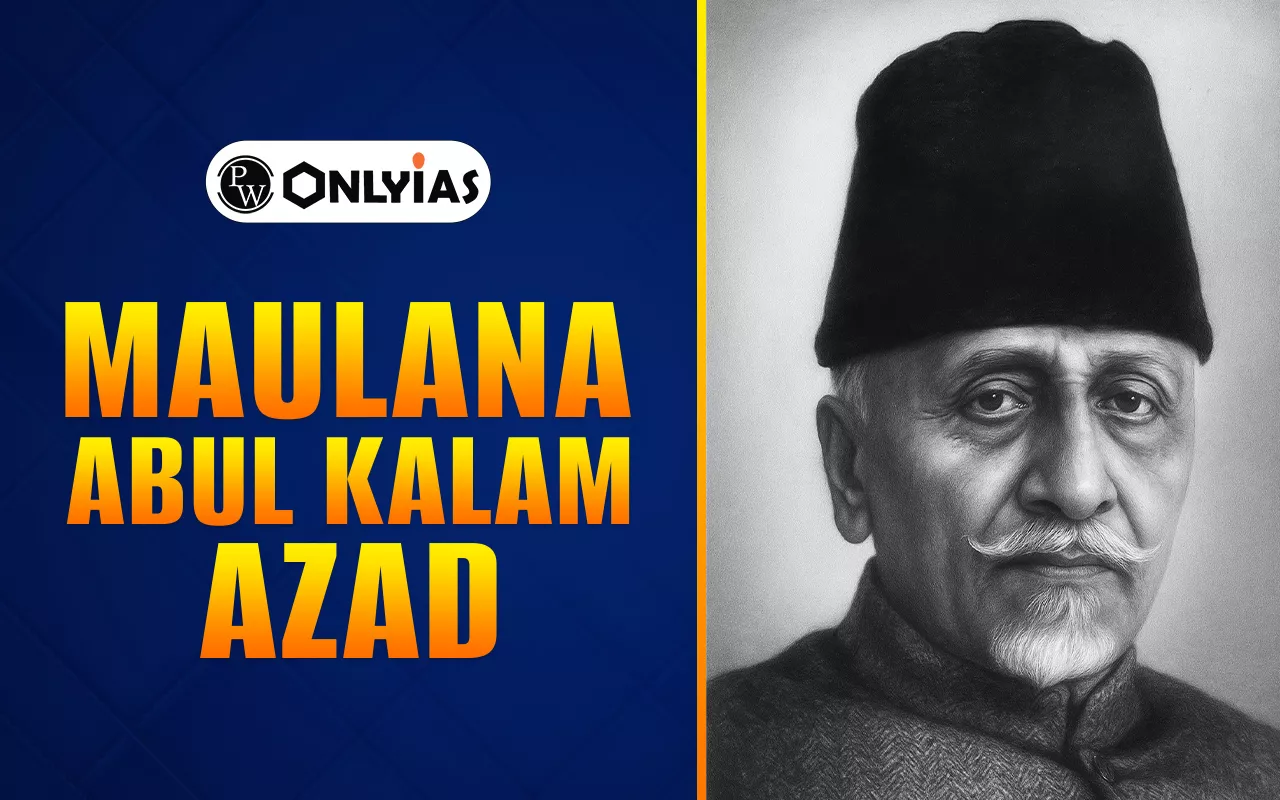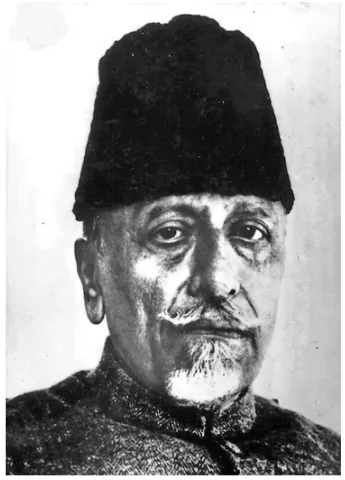Maulana Abul Kalam Azad was an important leader in the independence movement of India, a noted scholar, and the first Education Minister in free India. He advocated for modern, scientific, and equitable education for all the people of the country. His work as a social reformer advocating national unity and inclusive education remains useful for almost all students, particularly those preparing for competitive exams. He is thought of every year on November 11, marked as National Education Day in India.

Maulana Abul Kalam Azad (1888–1958) was a prominent Indian freedom fighter, Islamic scholar, writer, and journalist born in Mecca and later settled in Calcutta. A major leader of the Indian independence movement, Azad supported Hindu-Muslim unity and opposed the partition of India.
He was India’s first Education Minister after independence, where he laid down an architecture for a modern education system with particular emphasis on science education and the universalization of education. He was the youngest president of the Indian National Congress and a close associate of Mahatma Gandhi. After his death, he was awarded the Bharat Ratna for his services to the nation.
Maulana Abul Kalam Azad was a pivotal leader for independence in India, an esteemed author, and an acclaimed Education Minister of India post-independence. He was greatly admired for his intellect and vision for a free and educated India. He was dedicated to the concept of nation-building and a man dedicated to secularism, making him an important topic to study for students and test takers.

Azad, who was born on November 11, 1888, is commemorated each year for the immense contributions he made to Indian society. In 2025, schools, colleges, and educational institutions within the country will conduct events, essay competitions, and seminars throughout the year in honor of Azad and his vision for education.
Azad’s full name is Abul Kalam Ghulam Muhiyuddin Ahmed bin Khairuddin Al-Hussaini Azad. Azad was born in Mecca, Saudi Arabia, to a Bengali father and an Arab mother, and he migrated to Calcutta (now Kolkata) with his family when he was two years old. Azad was a scholar, a writer, a poet, a journalist, a politician, and an educationist throughout his life.
Azad studied at home with the help of tutors in the following: Persian, Urdu, Arabic, mathematics, history, and even philosophy. By age twelve, he was already managing a library and debating society, reflecting his early intellect and leadership skills. At age thirteen, he married Zulaikha Begum, a fairly normal step for the time period.
Azad’s birthday, November 11, is recognized as National Education Day in India in honour of his vision and contributions as the first Education Minister of the country. On this day, schools and colleges carry out literacy campaigns, discussions, and awareness activities about the significance of education.
Azad was born in Mecca, which was at the time part of the Ottoman Empire, and is presently located in Saudi Arabia. His diverse background contributed to his liberal outlook and secular beliefs.
Azad was an active writer in both Urdu and English. He became the editor of the Urdu weekly “Al-Hilal” and later “Al-Balagh,” both of which were committed to British rule and Hindu-Muslim unity. His published works, “India Wins Freedom” and “Ghubar-e-Khatir,” are celebrated for their scholarly sophistication and thoughtful insight into the struggle for India’s independence.
Azad’s poetry is known for its depths of emotion, almost exclusively written in the language of Urdu. Much of his poetry incorporates the themes of freedom, togetherness, and nationalism, which show his dedication to the independence of India and a peaceful communal life within the country.
Azad was India’s first Education Minister and served in this capacity between 1947 and 1958. He emphasized universal primary education, established policies for increased access to higher education, and was the architect of the frameworks governing the Indian Institutes of Technology (IITs) and the University Grants Commission (UGC). He laid the groundwork of India’s modern education system with his initiatives.
Check Out UPSC CSE Books
Visit PW Store
Azad died on 22 February 1958, but his contribution to education and national integration is remembered till today. The Government of India conferred on him posthumously the Bharat Ratna, India’s highest civilian honor, in 1992.
Azad served as Congress President in 1923 and 1940 and symbolized the principle of unity and resistance to British domination.
Ready to boost your UPSC 2026 preparation? Join PW’s UPSC online courses today!
Maulana Abul Kalam Azad's birthday is marked as National Education Day in honor of his lifetime push for the right to education, and for being India's first Education Minister.
Azad published various works, such as "India Wins Freedom," which describes the reasons behind India's independence movement, and "Ghubar-e-Khatir," a collection of letters and essays written during Azad's imprisonment.
He founded the IITs, expanded primary and higher education, and worked to improve the educational infrastructure and shape India's vision for modern education policy.
Azad led the campaign for the Quit India Movement, also led the Khilafat Movement, and held the presidency of the Congress party. Azad was a consistent advocate for non-violence and national unity.
<div class="new-fform">
</div>